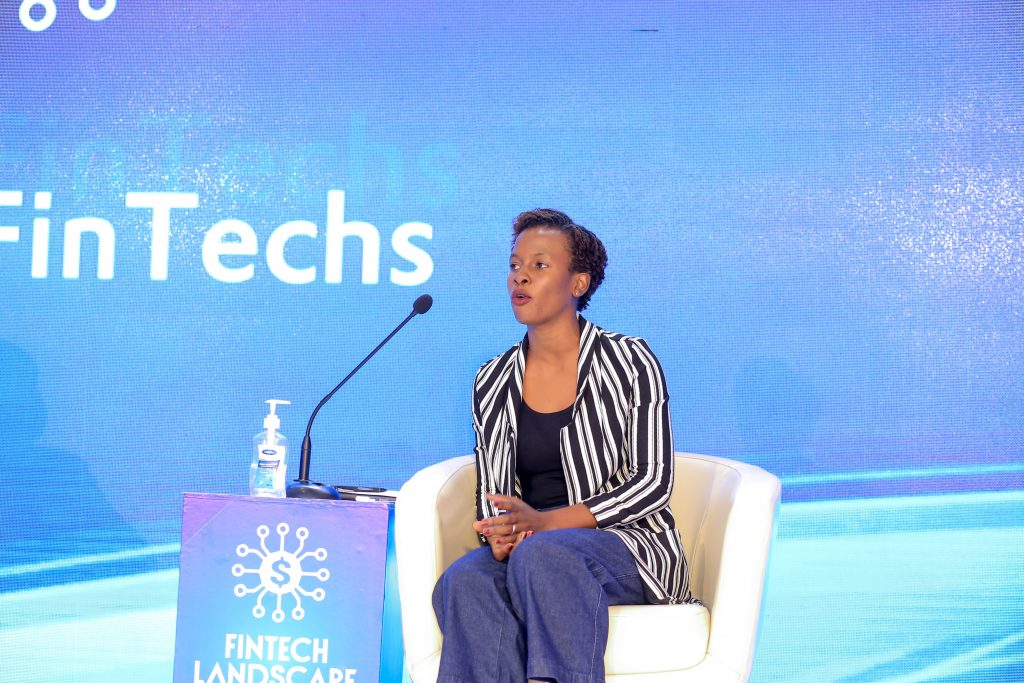Customer centricity is key in promoting digital financial inclusion.

Our Reporter.
Financial technology companies (fintechs) have been urged to ensure customer centricity in the development of digital financial products, as it will be key in enhancing financial inclusion.
Speaking during the two-day fintech landscape exhibition to mark the end of the 40-days-40-fintechs project at Sheraton Kampala Hotel, Wendy Nanfo, the customer delivery supervisor at Jumo Uganda said customer centricity will enable fintech players focus on customer needs and thus provide innovate products that best suit their needs.
“We need to focus on customer needs; investigate the actions and the artifacts of all the touch points on a customer journey. Knowing who you are serving helps you understand the data and be able to provide a product that best suits your customer,” Nanfo said.
Customer centricity is having a product or service that responds to customer needs at all times.
Nanfo commended HiPipo for advocating for Mojaloop software, saying that it will provide an interoperable solution which is expected to be a game changer in the fintech space as it will provide players with an alternative source of data.

“You need data to be able to serve the person at the bottom of the pyramid. So being able to plug into an API that has data from other sources will help us produce products that best suit our customers,” she said.
The Buladde Financial Services financial services manager John Mark Golooba also alluded to the need to offer simple to use digital financial products to enable people who are still financially excluded to adopt.
The FinTech landscape exhibition was organised by HiPipo, to mark the end of the 40-days-40-fintechs project, which was held in partnership with Crosslake Tech, ModusBox and Mojaloop Foundation.
The engaged fintechs were equipped with interoperability skills, using Mojaloop, a switching platform with a centralised service that brings together digital financial service providers to help boost financial inclusion in Africa.
Across Africa, it is estimated that only about 43% of people in sub-Saharan Africa are financially included while in Uganda about 78% of the population is financially included both formally and informally.
This is mainly because of high transactional costs, especially across different service providers, which experts say is an obstacle to achieving meaningful financial inclusion.
Currently, providers of digital solutions have to build everything on their own, which is expensive as there is no single loop. This means that they have to charge high transaction fees that are hard for poor customers to afford. Additionally, more services end up being a closed loop where customers can only transact with other customers using the same service.
Lowering cost would therefore require shared platforms like Mojaloop, unto which all players can plug at a low cost, which will help lower both on-network and off-network transaction costs.
Simple products
Daisy Kavinya Mwanzia, senior manager banking, MTN Group said there is need for simplification of financial products, saying it will be key in facilitating adoption of digital financial solutions that include everyone in society.
She said Mojaloop has laid a good foundation, which will provide for the simplification of digital financial solutions and thus enhance financial inclusion across the globe.
The Flutterwave country lead Nielsimms Sangho said his fintech, which specializes in building infrastructure that can be used by others to build products, will use its expertise to help innovators develop relevant products that can be used by everyone, including those who cannot speak English.
The Lend in a Box Head of Business Oscar Ofumbi on the other hand urged fintechs to embrace cyber insurance so as to externalize risks by allowing the insurance company take on any related costs suffered in case of an attack.
Additionally, Ofumbi urged them to use a two-factor authentication, a multi-factor method that requires users to input different pieces of evidence before they are granted access to the account or system. This, according to him, will ensure an enhanced level of security for players in the fintech sector.
He noted that cyber risks are becoming a challenge for the sector, given that it could either be perpetuated by either an employee or a third-party service provider and that using insurance or a two-factor authentication would be very helpful.

The HiPipo CEO, Innocent Kawooya said HiPipo will continue advocating for a leveled playing field for all fintech players but noted that collaboration is needed to achieve this.
He said the project will not only change the way financial inclusion is done in the world but also transform millions of lives in years to come and change the way financial inclusion is going to be done in Uganda going forward.
Kawooya alluded to the need to secure payment platforms, saying that without that, people will lose trust and confidence in the digital payments systems.
“Without secure digital financial services, the world cannot achieve full financial inclusion because if there is a lot of fraud and businesses losing money in an ecosystem, people will not use it; they will keep money in their bags or assets and in the end, we shall not have money to grow the economy,” Kawooya said.
